In the age of iCloud, does Apple need to maintain a monstrous iTunes?
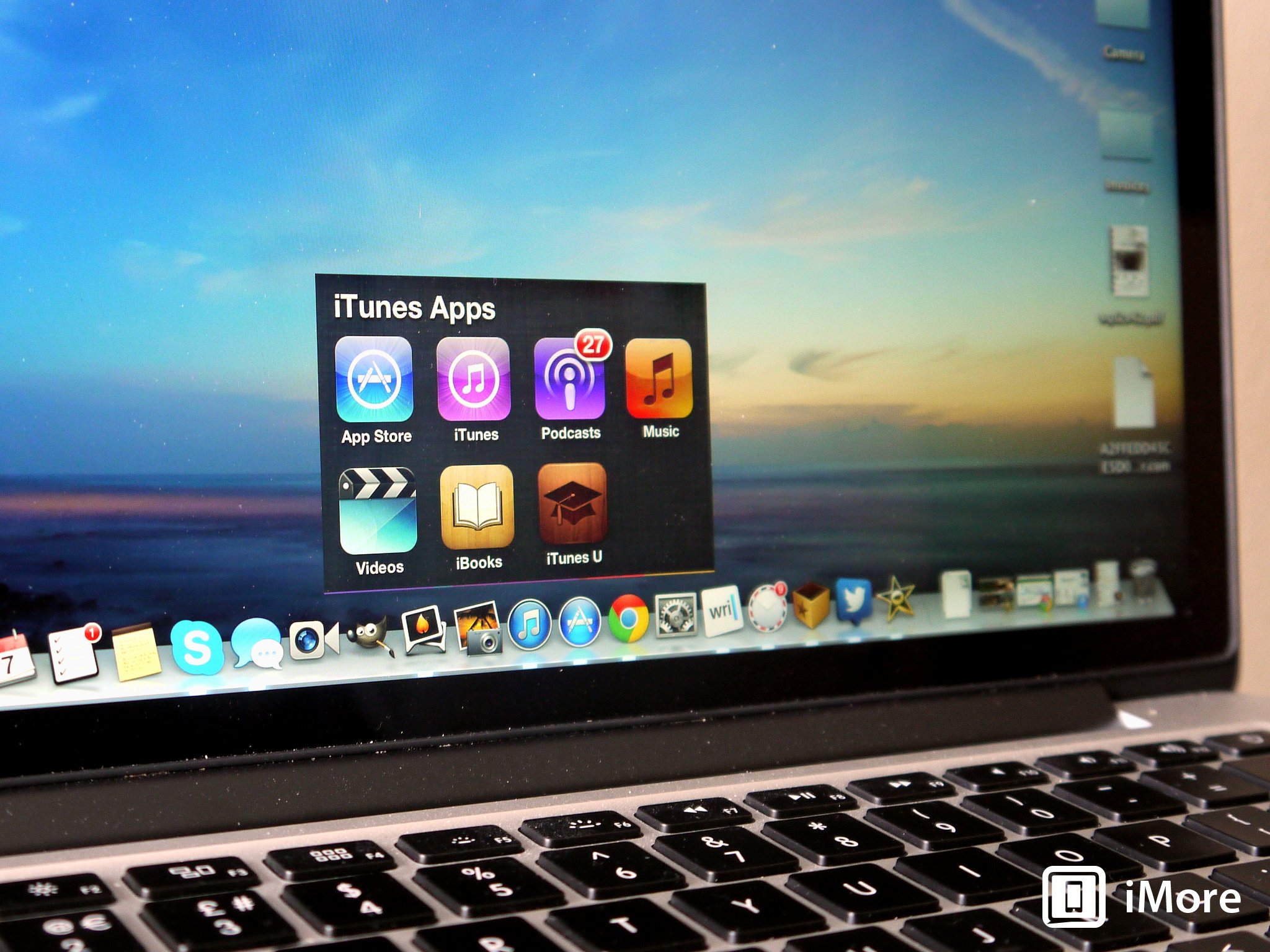
We get seven apps on iOS 6 to take care of iTunes, isn't it time Apple broke it apart on the desktop as well?
Breaking up iTunes is Peter Cohen's number one want for OS X 10.9. He's probably not alone on that front, I myself went as far as saying I'd love to see the Podcasts app broken away from iTunes and released as a stand alone as on iOS. On their iOS devices, Apple has made the iTunes experience so much better than on the desktop, and it's been this way for a long time. And, with iCloud at their disposal, Apple could easily strip apart the "bloated, unwieldy mess" that is the current iTunes desktop experience.
Doing it the iOS way
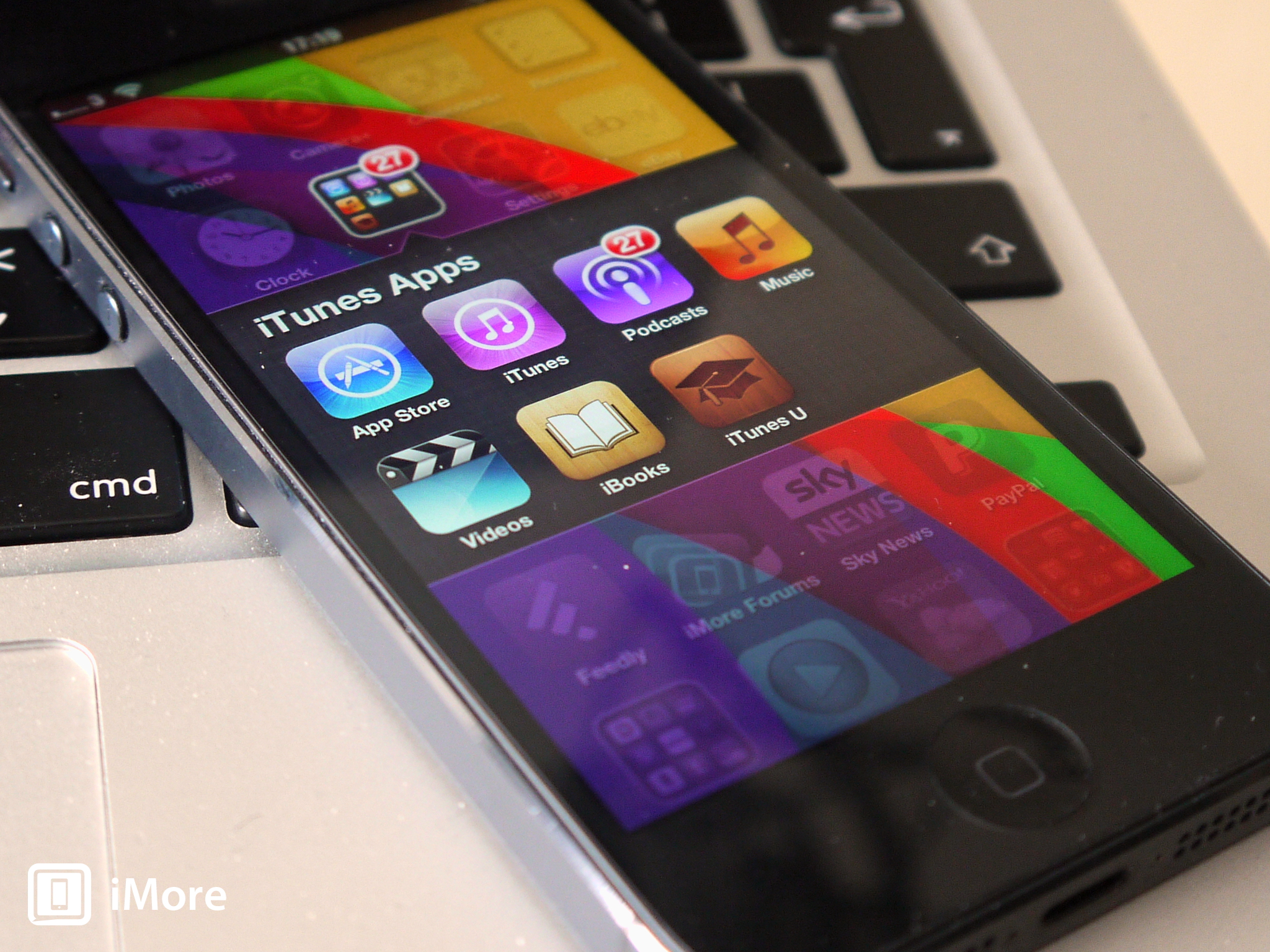
Seven apps. That's how many we have on iOS 6 to take care of the same as Apple has crammed into just one desktop app. Mobile apps are kept separate to music and video purchases, Podcasts away from books. The music and video players still allow you access to their respective stores, but it takes you out to a separate app instead of cramming everything under one roof. That's what iTunes on the desktop feels like. Like Apple started out with an idea, and as each new idea came along they just kept opening the door and squeezing one more thing inside. If iRadio does indeed launch at WWDC or even after this, this too would likely be squeezed into the house of iTunes.
If you don't want iTunes U, or iBooks, you don't have to have it
The beauty of iOS too, is that aside from the two stores and the two player apps, the others are optional downloads. Streamlined. If you don't want iTunes U, or iBooks, you don't have to have it. You don't have to look at it, try and hide it, you just don't download it from the App Store.
A bloated, unwieldy mess
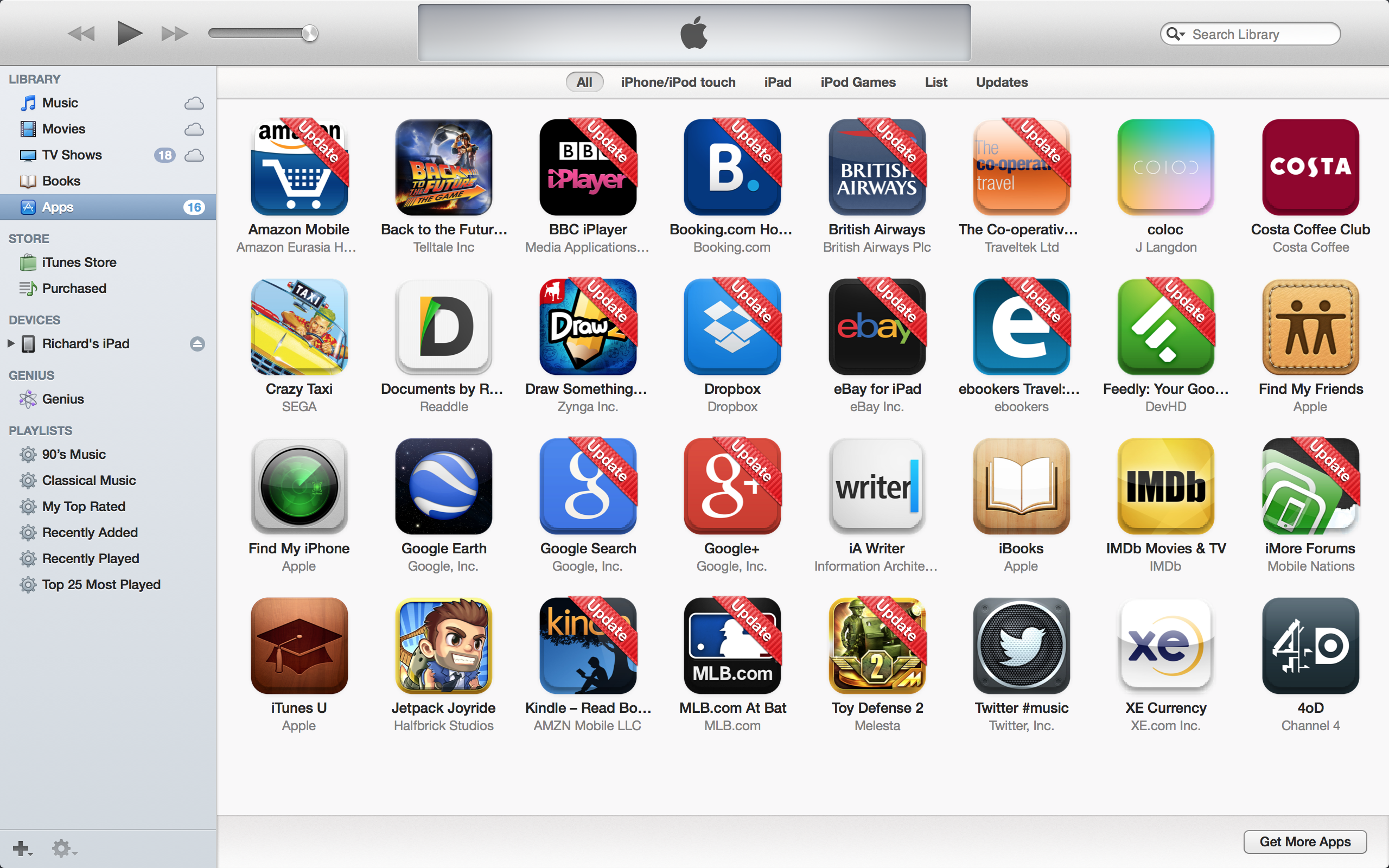
This is the Apps tab in my own copy of iTunes. I don't use it -- as you can possibly tell -- I don't need it, I'd like it to just not be there. Same goes for the Books tab. I can't read my iBooks on my computer anyway, so neither of these things really need to be there.
The iTunes Store is quite overwhelming
The iTunes Store is quite overwhelming. Doing a search for Batman brings up movies, TV seasons, TV episodes, iPad apps, iPhone apps, books, audiobooks, iTunes U content, podcasts and even a music video. Not all iTunes customers have an iOS device, if you wanted a book you'd probably be looking from the iBooks app on your iPhone or iPad anyway, and throwing iTunes U in the same search results as a TV episode? Some customers might be OK with this, this overload of information. But is it really necessary?
And when you're on a specific tab, such as the music, why does iTunes still conduct a global search of all the available content? If you're in the music section of store looking at music, and you conduct a search, chances are high you're only looking for music?
Breaking out
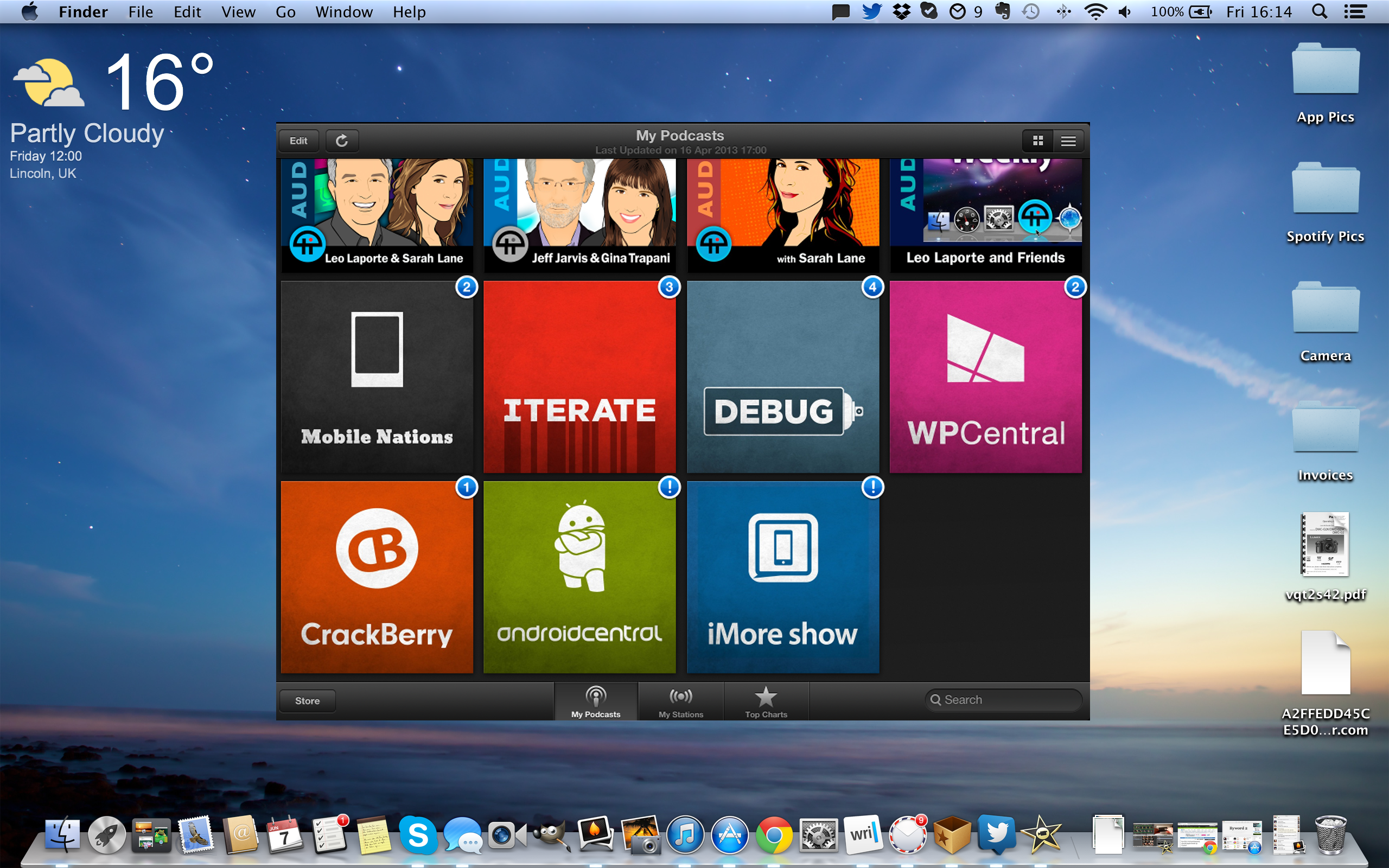
iOS does it right. Podcasts are now separate from music and the respective book, media and app stores are all in their own little corner of the OS. But, while you're likely going to want a music and video player and access to the stores, you don't necessarily want Podcasts, or iBooks, or iTunes U. So you don't have to have them. It's all so simple.
Master your iPhone in minutes
iMore offers spot-on advice and guidance from our team of experts, with decades of Apple device experience to lean on. Learn more with iMore!
Let the customer tailor their iTunes experience to their own tastes
This could work so well for the desktop, too. Ship a music player, and a content store. Leave iOS apps out of it, these would be much better served with a proper web portal a la Google Play to push to your device than using iTunes. Add separate downloads to the Mac App Store for Podcasts, iTunes U and iBooks so those who don't have an iOS device can still buy books and read them on their Mac like competing products already allow. Let the customer tailor their iTunes experience to their own tastes, and trim all the apps back.
But, what about Windows?
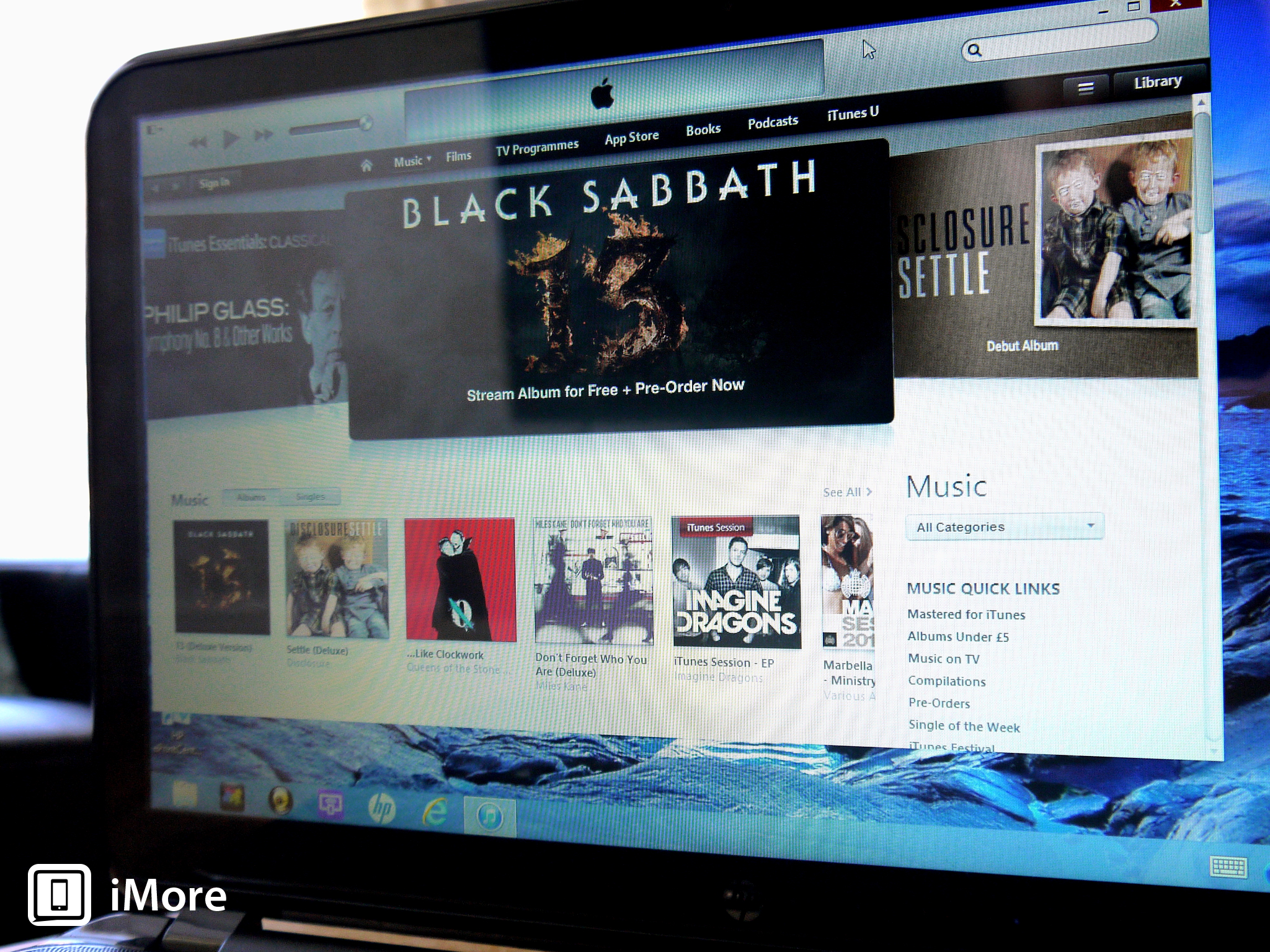
Anything that needs to be available to an iOS user on Windows has to be contained within the one iTunes app which Apple ports to the platform. This is why iTunes is as it is today, and as we've already learned, Apple isn't too keen on developing for Windows 8.
But, at the same time, whether you're a Windows or a Mac user, iTunes is still the same dreadfully overweight entity. Do Windows users use iTunes any differently? They still can't read their iBooks on their PC, and most app management for their iPhone and iPad is still most likely done on the device itself. And, in the age of iCloud, do we really need a desktop management solution for absolutely everything?
So, could iCloud be the answer?
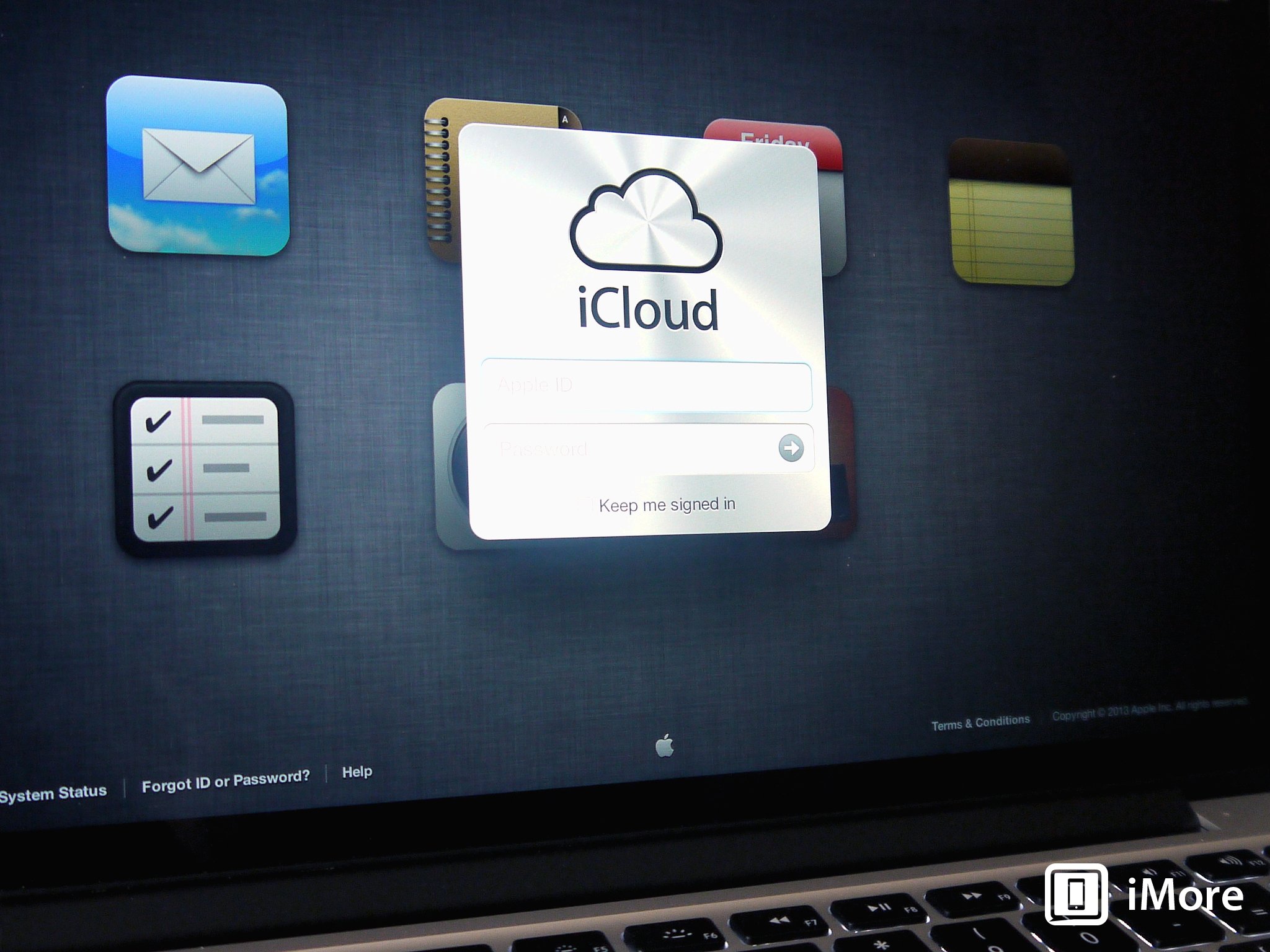
Part of it, yes. Take Google as an example. They manage nothing on the desktop. That's not necessarily the right way to do things, but there's a lot of it that could work out for iTunes. The Google Play web experience provides their customers with music, apps, books, tv shows, magazines; all available for purchase via the web to be pushed to your Android device. The Google Music player is a web client, the only desktop application is for uploading your own music to your cloud locker.
In the age of iCloud, is there really any need for Apple to continue to maintain a monstrous iTunes?
Apple could just as easily implement similar solutions, that would suit Mac and Windows users equally. You have to be connected to the web to use the store, so why does it need to be contained within the iTunes desktop experience? Apple could strip out all of this, and leave us with a vastly toned down media player. In the age of iCloud, is there really any need for Apple to continue to maintain a monstrous iTunes?
The bottom line
iTunes has been around for so long now, it's starting to get really bloated and overweight. On the one hand it's great that everything you need to help manage your iOS device, media content and more besides is accessibly in one place. But that one place isn't necessarily the right place. With iCloud at their disposal, Apple could strip away pretty much all of the overwhelming store, and leave us with a stripped down media playing experience. iOS style apps would be pretty fantastic, but while we have to think about our Windows using friends it's unlikely it would happen. Sending a big chunk of iTunes to the web would be a good place to start, though, and everyone could benefit from that.

